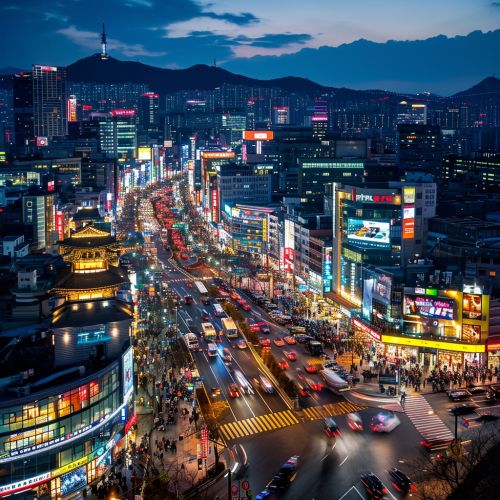Tourism in South Korea
Overview
South Korea is a country located in East Asia, known for its rich cultural heritage, vibrant cities, and stunning natural landscapes. The country's tourism industry has seen significant growth in recent years, attracting millions of visitors from around the world. The tourism industry in South Korea is a major contributor to the country's economy, providing jobs and revenue for many sectors.


History of Tourism in South Korea
Tourism in South Korea has a relatively short but dynamic history. The country began promoting tourism in the 1960s as part of its economic development strategy. The Korean War had left the country devastated, and tourism was seen as a way to stimulate economic growth and improve international relations. In the 1970s and 1980s, the government established the Korea Tourism Organization and launched several initiatives to attract foreign tourists.
Major Tourist Attractions
South Korea offers a diverse range of tourist attractions, from historical sites and cultural landmarks to modern cities and natural wonders.
Historical and Cultural Sites
South Korea is home to numerous UNESCO World Heritage Sites, including the Changdeokgung Palace Complex, Hwaseong Fortress, and the Gyeongju Historic Areas. These sites offer a glimpse into the country's rich history and cultural heritage.
Modern Cities
South Korea's modern cities, such as Seoul, Busan, and Incheon, are popular tourist destinations. These cities offer a mix of modern architecture, shopping districts, nightlife, and culinary experiences.
Natural Wonders
South Korea's natural wonders, including Jeju Island, Seoraksan National Park, and the Demilitarized Zone, attract tourists seeking outdoor adventures and unique experiences.
Tourism Infrastructure
South Korea has a well-developed tourism infrastructure, including a wide range of accommodation options, efficient public transportation, and numerous tourist information centers. The country's airports, particularly Incheon International Airport, are among the best in the world.
Impact of Tourism
Tourism in South Korea has both positive and negative impacts. On the positive side, it contributes to economic growth, job creation, and cultural exchange. However, it also poses challenges, such as overcrowding, environmental degradation, and cultural commodification.
Future of Tourism in South Korea
The future of tourism in South Korea looks promising, with the government and private sector investing in new tourism projects and initiatives. The country is also focusing on sustainable tourism, aiming to balance economic benefits with environmental and cultural preservation.
